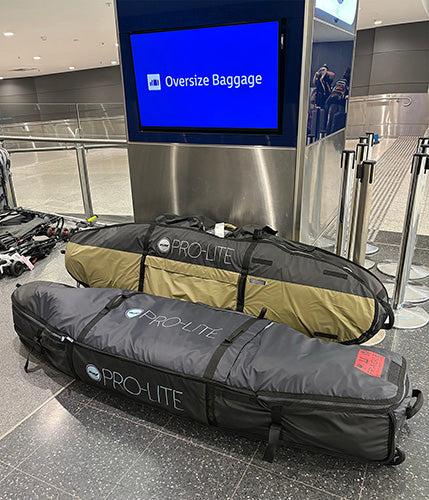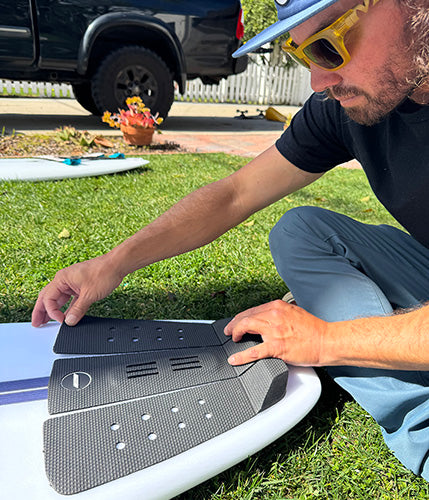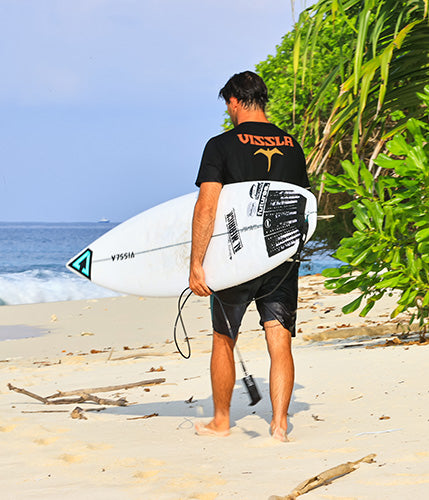Thiago Diz/World Surf League via Getty Images
Alot can change in a year.
Currently World No. 3 Brisa Hennessy started this year as a season wildcard after falling off tour in 2023, spending the rest of the year recovering from some life-changing health issues and then announcing a split from her major sponsor. A few months later, she was in the yellow jersey, her surfing taking on a new powerful brand and her board still sporting major vacant real estate. At just 24 years old, Brisa has proven to the world that not even a brain tumor can hold her back – in fact, it has sent her deep into the WSL’s top five.
SURFER caught up with Brisa to discuss what she’s been dealing with for the last two years, her relationship with her body, the power of vulnerability and how she rediscovered the joy of surfing.

Brent Bielmann/World Surf League via Getty Images
Talk us through the health challenges you have been facing over the last few years, how did it begin?
It really began in the beginning of 2022. I just started feeling not myself in so many different ways. I just had a lot of brain fog and I would just be out of it and forget words and I also just had so much fatigue and a lack of energy, which I've never experienced before. It happened pretty slowly, but the symptoms just started to build up and I definitely felt like something was wrong.
I was in Hawaii and we kind of randomly said I should take this blood test. And in the blood test it was showing all of my hormones were off and my thyroid was not in a good place. So, we got all this information the day before I left for Tahiti and I think that was that last event before the top five so it was pretty emotional. I saw that there was something wrong with me and that was really scary.
The event in Tahiti was just a challenge because I was in a fight with my body and my mind, and it was a weird place to be in.
After Tahiti, were you able to start figuring out what was going on?
No, because I qualified for the final five at that event and I couldn't pass that up, it was a huge opportunity for me. So I went to California and tried to visit some doctors there and all of them were telling me different things right before I was competing and I really had to push through that event too.
I fell off tour the next season because I tried to push through the first five events and I didn't make the cut and it was such a big sign from the universe saying I needed to slow down and take that space for myself.

Aaron Hughes/World Surf League via Getty
How did it feel when you didn't make the cut?
It was weird obviously. I was pretty devastated but I came to terms with the fact that it was exactly what I needed. That was the event that I started openly expressing my feelings and what I was going through on my social media and speaking my truth, which I felt like was the first step to healing. I put out that vulnerability post right before I competed so whatever was gonna happen I just surrendered and that gave me a lot of peace.
By that time did you have clarity on what was going on with your health or was that still to come?
No, that was when I found out about the brain tumor and one of my doctors was saying surgery was the biggest option for me. She thought the tumor was secreting the hormones in my pituitary gland and that was causing all the issues because the pituitary gland is the epicenter of everything – it’s kind of like the navigation system to our whole bodies. I had this relief – if we get that out, then I’ll go back to normal. I went to San Francisco and talked to one of the best neurosurgeons there and he told me that it would probably do more harm than good because it's such an invasive surgery and the pituitary gland is such a small area. I was more confused than ever and I think that was the hardest two months of my life.
And so what did you decide to do?
I just started trying to find different naturopaths and trying to find ways to go about it. I went on a different medication that was really helping my thyroid levels and some of the other doctors said shrinking adenomas are very common and they normally develop when you're under a lot of stress. So I just went back to the basics of just trying to get my body out of the fight or flight mode and just practicing more meditation and more self-love. I didn't surf for two months. I really focused on my nutrition. It was a scary place to be, not having an answer.

Ed Sloane/World Surf League via Getty Images
After that two month period of not surfing and going through all that did you start to find a sense of normalcy? How did such a big change affect how you see yourself?
I went back to Costa Rica because my parents and I have an ecolodge there and I spent around a month there just really disconnected from society and the fast-paced life. I feel like that set me on a really good trajectory of finding myself again for taking things slow.
I also went to Fiji too and just started surfing for fun. Surfing can be your greatest love and your place where you find peace and mindfulness, but then it could also be linked to so much stress and anxiety so it was hard to go back into the sport and not feel those triggering emotions. I had to fully restate my relationship with surfing and that was an incredibly challenging task, but I think that set me up for this whole year and who I am right now.
It’s still such a journey of how I see myself. I watched my body change a lot and struggled with different problems when I was younger too, navigating my way through an eating disorder and body image stuff. It was interesting because while I changed so much I actually saw my body and was able to feel it and appreciate it and there were such hard times and hard moments, but it felt so needed.
It's just such a dark and difficult side of the surf industry because there is so much emphasis on our bodies. What was your processing around that?
Yeah, I feel like we have the best sport in the world, but definitely a huge part of it is showing our bodies constantly. I don't think any other sport really is like that and I think that was a main thing of how those triggers kind of came up within myself. What I realized is that if you look at every type of surfer, we're all built very differently and that’s what makes surfing unique.
I was able to really see that I'm a power surfer and my big strong thighs are what gets me scores and I need to embrace that more and really acknowledge that that's my biggest strength and I can't run away from that. I think all bodies are beautiful and they serve a purpose, so we should just be our greatest cheerleaders.

Brent Bielmann/World Surf League via Getty Images
What was your decision making around wanting to share what you're dealing with and being honest online about what you’re going through?
This world is a challenging place at times and I struggle with posting that perfect picture and that perfect life that we live. Social media is this kind of false reality of what's happening and I felt through my healing, speaking my truth and hopefully knowing I could just help one person really made my purpose and my “why” clear.
I want to use this platform the best that I can and I want to show the beautiful moments but also the hard and ugly moments are also part of being an athlete and being a human. Why should I hold back and not be vulnerable?
You started off this year with another big change, announcing your split from Rip Curl. You’re now surfing without a major sponsor, what happened?
I felt like it was exactly what needed to happen. I think for my growth and for what I wanted to represent and embody....and their direction too. It was definitely very challenging but I think it gave light to believing in myself, and at the end of the day, it's more than representing a brand, you need to represent yourself and what you believe in. Change is freedom and I felt so free. It was super challenging, I can't deny that, but I felt like this is the time when I need to actually believe in myself 100%; there's no other way that I will make it through this or succeed. I need to back myself and that beauty within.
What was it like facing the prospect of starting this year as a wild card and without a major sponsor and then a few months later you were in the yellow jersey?
Gosh, at the beginning of the season it was a struggle. I was still trying to navigate my health issues and going to the North Shore there was so much noise and so much hype and I definitely felt very vulnerable at that time. I didn't know how this year would go and I was kind of starting from scratch and trying to reinvent myself. I also was in this space of starting from scratch, meaning anything was possible and having no expectations meant that I can receive everything. I just want to enjoy this whole process of being a professional surfer.
With the Paris Olympics coming up, what is the experience of representing Costa Rica like for you?
I feel like I had kind of struggled with my identity a lot – where I come from and where my community really is, but if I think about how I see this world and my love for surfing, it's so clear Costa Rica has done that for me time and time again. It’s rekindled that light and I think the Olympics in 2021 really solidified that for me. Seeing this small country come together was unlike anything I've ever felt before. Seeing how surfing can change a small country like that – I want to be a part of that change. If I could make change anywhere, I think Costa Rica would be the place.
Brisa has designed her own signature line of Pro-Lite Micro-Dot traction pads inspired by her home country of Costa Rica. You can view all styles of the Brisa Pro Surf Traction or learn more about her on the team page: Brisa Hennessy Pro-Lite Team
This full article and more content can be viewed here: Brisa Hennessy On Overcoming a Brain Tumor and Getting Ready for Paris 2024 - Surfer





